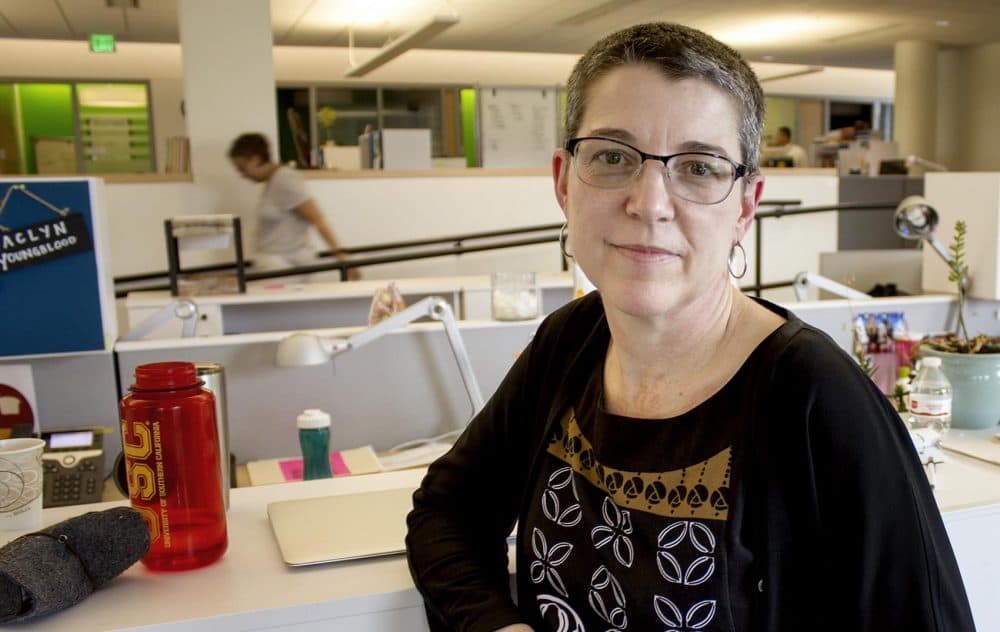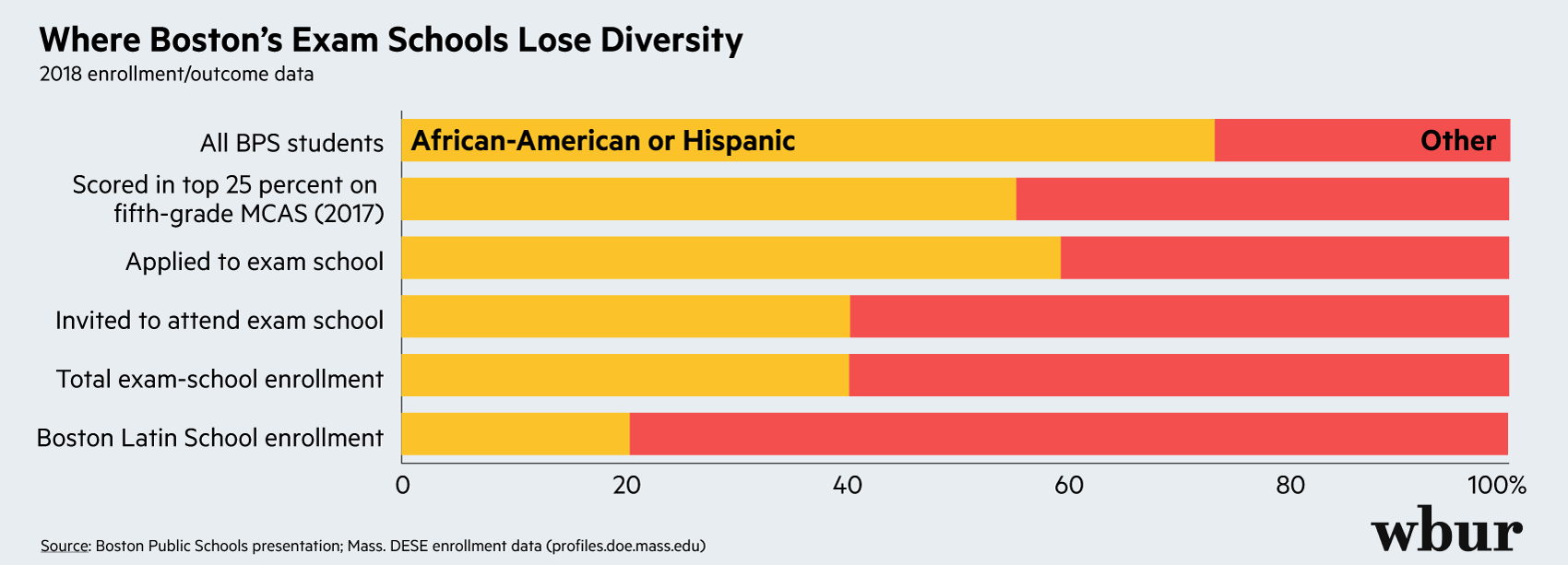Advertisement
Boston Superintendent: No Plan To Change Exam-School Admissions Test

Officials at Boston Public Schools said they are not ready to abandon the current entrance exam, as they consider efforts to make the city's three exam schools more diverse.
In an interview, Interim Superintendent Laura Perille said that BPS sees the move announced last month — to administer the entrance exam during the school day — as a “hugely positive step” in its own right, and that, therefore, the district is “not proposing any other changes to the exam this fall."
"We need to be careful and deliberate," Perille added.
She was responding to a Wednesday report in The Boston Globe. It suggested that, as part of its diversity efforts, the district was actively considering assessments to replace the Independent School Entrance Examination, or ISEE, in exam-school admissions.
Like what you're reading? Get the latest news Boston is talking about sent directly to your inbox with the WBUR Today newsletter. Subscribe here.
City data show that black and Latino students run into trouble with the current testing regime: they're disproportionately unlikely to register for the exam, to show up and take it on the weekend it is administered and to earn a high-enough score to win admission to one of the exam schools. (The admissions regime also considers students' grades.)
There's a longstanding racial disparity between the exam schools — especially Boston Latin School — and the district at large. And Harvard researchers think the current testing regime plays a role.

Joshua Goodman, one of the researchers, said the ISEE — designed for private-school admissions — “tests a number of topics that aren’t aligned with what’s taught in BPS” through sixth grade, including algebra.
For Goodman, that suggests the test may tend to favor students who begin their learning at private or parochial schools, or whose families have the resources for outside tutoring.
Goodman and his co-author, Melanie Rucinski, said BPS could avoid any bias in test participation by abandoning the ISEE in favor of a test that all BPS students must already take: the fifth-grade MCAS exam.
Goodman said that one day, BPS could award exam-school admission as seamlessly as the state doles out its John and Abigail Adams Scholarships: going all but automatically to students with MCAS scores in the 75th percentile or higher.
"My belief is that the best systems are the simplest," Goodman said.
But Perille said it isn't quite that simple. Students from private and parochial schools also apply for admission at the exam schools, but they don't take the MCAS.
"Our current understanding is that there are barriers to using MCAS for a non-BPS student," Perille said. "You'd have to consider lots of factors around how to manage that."
And she said she wanted exam-school admissions to be highly competitive.
"Under any circumstance, we believe in preserving the rigorous standards to enter exam schools," Perille said, while continuing to help all students meet those high standards.
She cited the city's ongoing efforts to provide free prep for the ISEE, as well as a new attempt to improve "grading consistency" across BPS schools.
Perille might have disappointed activists who were hoping for a coming "paradigm shift" in exam-school admissions, beyond a new test. Some want to include something akin to New York's move to select exam-school classes from the top of its many public schools, or a Harvard-like system of 'holistic admissions' that deemphasized testing altogether.
But Perille didn't slam the door shut, at least not in the long term. She said the district is always "examining our own assumptions, looking at best strategies and then also testing for feasibility, practicality and implementation in the real world."
"Can paradigm shifts come out of all that?" Perille said, "Absolutely. But we're focused on continuing to ask questions" for now, she said, with "equity" in mind.
